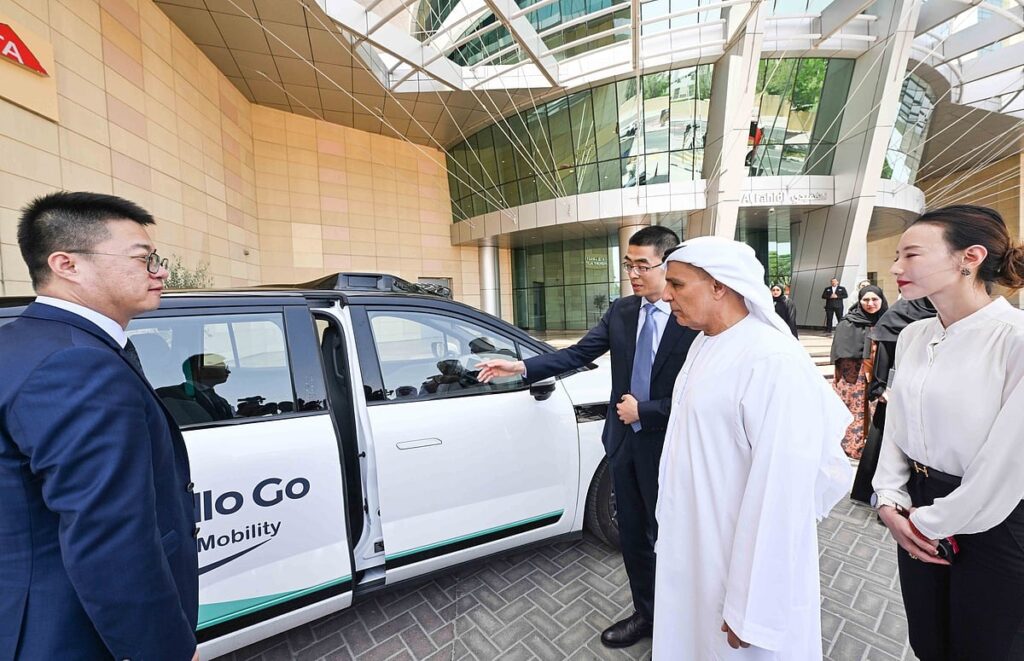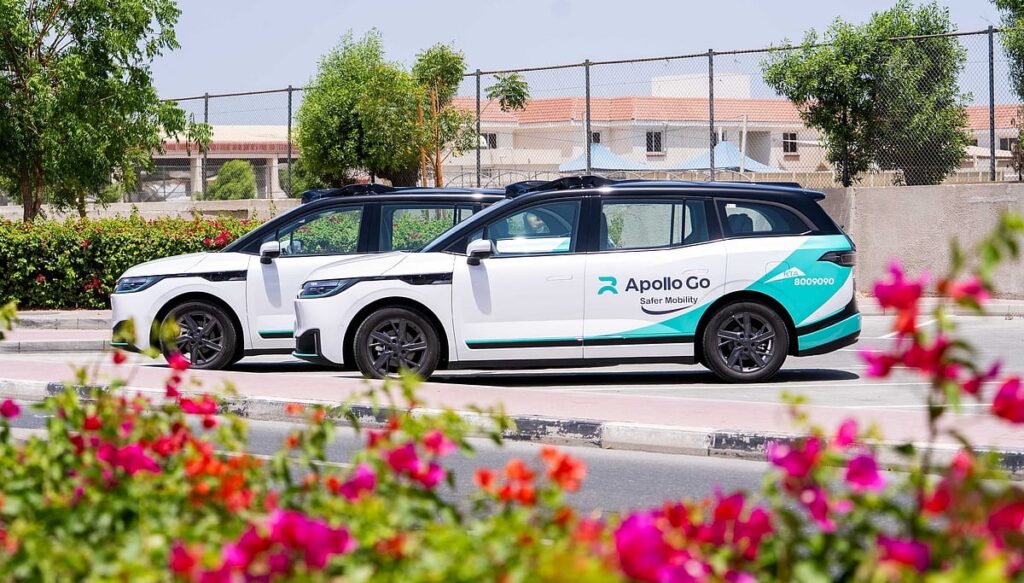Dubai is set to begin trials for Baidu’s autonomous ride-hailing service, Apollo, with the goal of launching driverless taxis by 2026. The Roads and Transport Authority (RTA) of Dubai has signed a Memorandum of Understanding (MoU) to introduce these taxis on a large scale.

Technology and Features of Apollo Go
Apollo Go will deploy its latest generation of autonomous vehicles, the RT6, which are specifically designed for mobility services. These vehicles are equipped with 40 sensors and detectors to ensure top-tier safety and automation standards. The model has already been successful in China, where it has received positive feedback from users.
Trial and Expansion Plan
The testing phase will begin with 50 vehicles in the coming months, with plans to expand to 1,000 autonomous taxis over the next three years. This marks the first international expansion for Apollo Go outside of mainland China and Hong Kong.
Global Reach and Achievements
Apollo Go has accumulated over 150 million kilometers of safe driving and completed more than 10 million autonomous trips, making it the largest operator of autonomous vehicle fleets in the world.
Dubai’s Vision for Autonomous Transportation
Mattar Al Tayer, Director General and Chairman of the RTA, emphasized that after months of testing, autonomous technology has become a reality. Dubai aims to convert 25% of all trips into autonomous journeys by 2030. The RTA has been testing autonomous vehicles since 2016 to achieve this goal.
Collaborations and Future Plans
The RTA has also collaborated with Uber Technologies and WeRide to launch autonomous vehicles in Dubai through the Uber platform. Additionally, Dubai Taxi Company plans to begin driverless taxi services next year. In Abu Dhabi, Uber and WeRide launched a commercial driverless taxi service in 2024, and a similar initiative has been introduced for free travel between Saadiyat and Yas Islands to Zayed International Airport.Impact on Transportation
Ahmed Hashim Bahrozyan, CEO of the Public Transport Agency, highlighted that autonomous transportation will benefit individuals who are unable to drive, including children and the elderly. It will also improve road safety and save significant time and effort, marking a significant shift in the future of transportation

